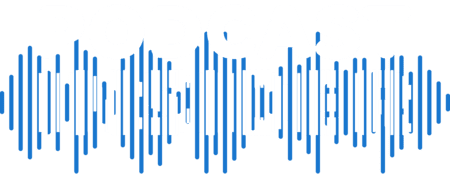This is a two part article, look out for the companion piece later this week.
 Is there someone you want to interview for your podcast? Certainly, that big name will boost your audience numbers just by putting that name in the episode title. But, are you sure? Too often, podcasters put their hopes in great podcast interviews but don’t put out the effort to produce them.
Is there someone you want to interview for your podcast? Certainly, that big name will boost your audience numbers just by putting that name in the episode title. But, are you sure? Too often, podcasters put their hopes in great podcast interviews but don’t put out the effort to produce them.
What you may need is what no one else is giving your audience. Your content is unique because it’s from you – your message, your voice, your perspective. But as a listener, if your content isn’t providing value to me, I’m going to move on. When it does provide value, I tell other people. We know that the best advertising of podcasts is by word of mouth. One person telling another, “You should listen to this.”
Building your audience with good content will pay off in the short and long term. Start by assessing what you have to offer.
What Does Your Audience Want from a Podcast Interview?
Many podcasters are determined to snag that “big name” podcast interview. They’re convinced that the name alone in the title will bring in new listeners. Get that big name to say yours and mention to their audience that you did an interview with them and bam! Your numbers will jump!
Frankly, that’s an empty hope for a lot of reasons.
Big Name Podcast Interviews Don’t Usually Pay Off
The big names don’t often mention these interviews on their own show. Maybe because they may lose listeners. Or maybe the interview didn’t turn out well and by preventing their audience from hearing a poor interview, they’re protecting their brand. Or, worse, the interview just doesn’t deliver value to them. “More of the same old questions” that the audience already knows isn’t worth their time to promote to their listeners.
But the well-done interview does bring a lot of value to your audience. It’s not just about making sure the sound is good – that is critical – but that the content is something that they can’t get anywhere else.
How do you produce the great interview?
Interviews take time and effort. What you may see on a talking-heads news program is often the result of neither. People just shouting at each other so neither is understood is a horrible interview.
What do you need to get and craft a good interview?
1. It’s not just about the big name. It’s about what the guest has to tell you.
Getting a lesser-known guest has a lot of potential to speak to your audience. The big names already have an audience and probably don’t care about yours. The new name, the less-familiar expert, or even someone with the story that your audience needs to hear is a better investment of your time and effort.
And because they’re not the big name, they’re going to be more interested in telling others about your interview with them.
How do you find them? You know the big names in the field. Everyone knows them. Finding the up-and-coming voices is a challenge. There are a few ways you can find them, however.
- Go to Amazon and put in the topic or keyword into the search bar for BOOKS. You’ll see the big names come up right away, but scroll down to see who else is listed. Get those next names and keep a list. Start searching for your topic in Google and see where those names show up. If you can read their works online (or use the library), you’ll get to know who might be the best candidate for an interview.
- What does your audience want to know? What do you want to know? Put your question into the search engine on YouTube and see what comes up. This is a great way to decide who you might consider for your show. If a potential guest has a habit of ducking a question or changing the topic when the questions become too pointed, you’ll know that’s who to avoid.
- Look for co-authors or less popular sources. If the top resource in your field is publishing articles about your topic, see who’s doing the writing and who they’re quoting.
2. Introducing Your Guest
Interviews often start with introductions. In my opinion, the host with a concise explanation of why this guest is on the show and what the listener will learn does the best introduction.
This is a delicate point. If you give away all the goods in an intro, why should the audience stick around? You might introduce your guest with the classic “Our guest today has (done a thing) and has three things that you need to hear so that you don’t make the same mistakes.” Or a short – emphasis on short – biography with a question that creates curiosity in the listener that makes them want to stay.
How much biographical detail you want to give the audience is up to you. I don’t often think that the bio is as important as what the guest has to say. I’ll skip over those often, but I know there are a lot of people who want to know the credentials of the guest. I’d say that your style is yours. How you want to include their biography, education, history – that’s up to you.
Some – most – unprepared interviewers start with the question, “Tell us about yourself.” That’s too broad and invites the guest to tell us about things that aren’t particularly important to your audience (do I want to know when they graduated from high school? Not really.) You need to set the guest up in the intro to provide their best interview. That means you explain to the audience who this guest is and why you want them on your show.
3. Editing the Podcast Interview – Play Fair!
Any discussion is likely to go sideways at some point. The question gets an answer that doesn’t help the audience understand, or the discussion goes off on a tangent.
Don’t be afraid to edit a conversation, but play fair. It’s wrong to change a comment’s intent by fraudulent edits. Keep the conversation legit, but consider the non-answer. Ask yourself if it’s worth the listener’s time. If you ask a question and get a “no” then you might cut the question out of the interview, unless the “no” has something behind it, such as the start of a story.
I try to pull out the obvious filler words or extra-long pauses. Sometimes a guest might drop in a few words that you want, such as the F bomb or another swear word or vulgarity. If you don’t want an explicit rating, go ahead and bleep it out. Be sure to warn the guest before the recording begins if you want to keep it clean.
People talk about the best interview they just heard
When you have a great interview with material that your listeners gets excited about, you know they’re going to share it and build your audience without further work from you.
In the next blogpost, we’ll talk about the three keys you need to produce an great podcast interview that will excite your audience.
____________
 Kim Krajci, host of Toastmasters 101 podcast, has been podcasting for 7 years and writing since the creation of the stylus and clay tablets. She also teaches speech and debate and works as a social media manager.
Kim Krajci, host of Toastmasters 101 podcast, has been podcasting for 7 years and writing since the creation of the stylus and clay tablets. She also teaches speech and debate and works as a social media manager.





